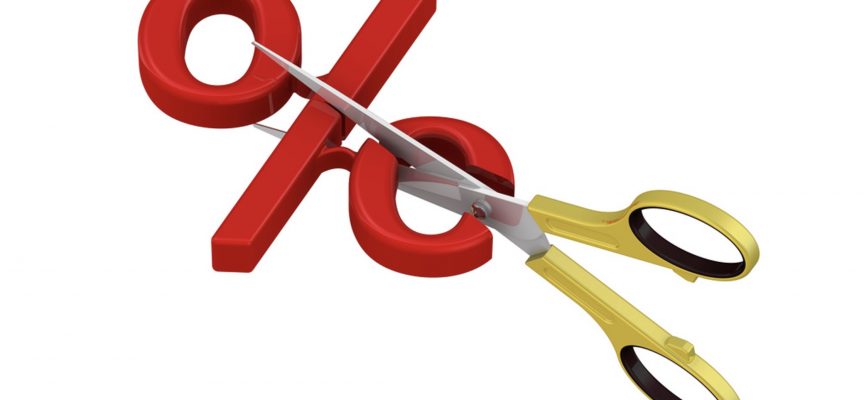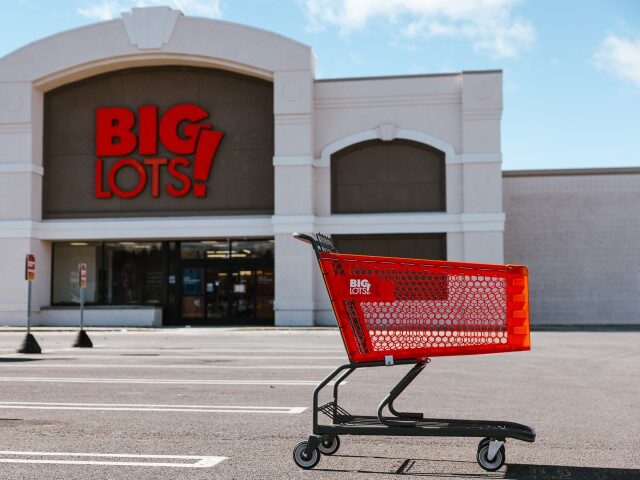from Gregory Mannarino
Second Inflationary Wave Waiting To Be Unleashed as the Fed Cuts Rates…
from King World News
 A second coming inflationary wave is waiting to be unleashed as the Fed cuts rates…
A second coming inflationary wave is waiting to be unleashed as the Fed cuts rates…
2nd Inflationary Wave
September 9 (King World News) – Graddhy out of Sweden: Very big picture silver and sugar move similarly. And with silver’s huge breakout, sugar should be close behind. Sugar now has perfect 50% retrace.
Another chart showing that the 2nd inflationary wave should start soon. Get prepared.
What to Expect from Wednesday’s Closely Watched Report On Inflation
Federal Reserve Officials Will Scrutinize the Data as They Consider Cutting Interest Rates
by Diccon Hyatt
Investopedia
:max_bytes(150000):strip_icc():format(webp)/GettyImages-2169789365-b4e19182c1fa47ce9a36f427c3b79b15.jpg) Household budgets likely got a welcome break in August, with prices falling or staying flat for important items including food and gas, if forecasts of an upcoming inflation report are correct.
Household budgets likely got a welcome break in August, with prices falling or staying flat for important items including food and gas, if forecasts of an upcoming inflation report are correct.
The Consumer Price Index (CPI) report Wednesday should show prices rose 2.6% over the year through August, down from a 2.9% annual increase in July, according to a survey of economists by Dow Jones Newswires and The Wall Street Journal.
Falling prices for gas and stable prices for food likely helped keep overall inflation in check, several economists said. If the prediction holds, the annual inflation rate would be a fresh low since March 2021.
Are Greedy Companies to Blame for Grocery Inflation? We Looked at the Data.
by Alina Selyukh
NPR
 Are greedy corporations to blame for inflation?
Are greedy corporations to blame for inflation?
Ariane Navarro thinks so. She recently pulled up her budgeting spreadsheets from 2021 and was shocked by how much her family’s grocery bill has skyrocketed.
She’s not imagining it: From February 2020 to this July, grocery prices grew a cumulative 25.6%. That’s higher than overall inflation, which was 21.6% during that same period.
“We have no other choice — we have to buy groceries,” says Navarro, who lives in Houston. “That’s a basic need. And so [companies] use that to kind of take advantage and keep raising prices.”
Gold Prices Steady with Spotlight On U.S. Inflation Data
by Anushree Ashish Mukherjee
Reuters.com
 Sept 9 (Reuters) – Gold prices held their ground on Monday, as investors awaited the U.S. inflation report for further clues on the potential size of the Federal Reserve’s interest-rate cut.
Sept 9 (Reuters) – Gold prices held their ground on Monday, as investors awaited the U.S. inflation report for further clues on the potential size of the Federal Reserve’s interest-rate cut.
Spot gold was little changed at $2,499.79 per ounce by 1:54 p.m. ET (1754 GMT).
U.S. gold futures settled 0.3% higher at $2,532.70.
Bullion “will probably be fairly consolidated, perhaps a little bit choppy in the established range in gold,” said Peter A. Grant, vice president and senior metals strategist at Zaner Metals, who expects gold to hit all-time highs.
It’s Not the Fed That’s Causing Inflation
by James T. Moodey
American Thinker
 Inflation causes poverty, and the poor have no defense. Kamala Harris said inflation was caused by the COVID crisis. More recently, she said it is caused by greedy retailers. No, Kamala — it was caused by you and Joe, and no one else.
Inflation causes poverty, and the poor have no defense. Kamala Harris said inflation was caused by the COVID crisis. More recently, she said it is caused by greedy retailers. No, Kamala — it was caused by you and Joe, and no one else.
We are letting her off the hook for two reasons: by allowing the use of a bogus inflation chart and by blaming the money supply rather than her as the direct cause of inflation.
In their first week in January 2021, Joe and Kamala cut off every source of oil within their jurisdiction. In the very next month, three things happened: our domestic production of oil plunged from 13.1 million barrels per day to 9.7, oil prices doubled from $55 to $110 per barrel, and the monthly inflation rate leaped from 1.4 percent to 9.6 percent.
The red-herring inflation chart they offer shows inflation peaking six months later, which distracts from the fact that their action was the sole cause of inflation. It is a “trailing average” chart.
$36 Trillion ‘By the End of 2024’ – Elon Musk Backs Serious U.S. Dollar Inflation Warning That’s Predicted to Cause an ‘Inevitable’ Bitcoin Price Crash
by Billy Bambrough
Forbes
![]() Elon Musk, the mercurial billionaire whose fickle interest in bitcoin has waned since 2021, is stoking fears the U.S. dollar could be heading for a $36 trillion disaster.
Elon Musk, the mercurial billionaire whose fickle interest in bitcoin has waned since 2021, is stoking fears the U.S. dollar could be heading for a $36 trillion disaster.
The bitcoin price has swung wildly over the last month, bouncing between highs of $65,000 per bitcoin before crashing toward $50,000 as a legendary bitcoin trader suddenly flips his bitcoin price prediction.
Now, as details of Donald Trump’s mystery crypto project trickle out, Musk has backed a $36 trillion “by the end of 2024” warning over the spiraling interest payments on the huge U.S. national debt pile.
How Inflation Breaks Our Brains
From salt riots to toilet paper runs, history shows that rising prices make consumers—and voters—grumpy and irrational.
by Eric Boehm
Reason.com
 When Russian peasants set fire to hundreds of buildings in Moscow in 1648, the acute cause was a sharp rise in the price of salt. When they rioted again 12 years later, it was to protest a government policy that made copper money equal in value to coins made from silver—a policy that naturally caused widespread price inflation.
When Russian peasants set fire to hundreds of buildings in Moscow in 1648, the acute cause was a sharp rise in the price of salt. When they rioted again 12 years later, it was to protest a government policy that made copper money equal in value to coins made from silver—a policy that naturally caused widespread price inflation.
An increase in the price of bread, and an inept government response to it, helped set the French Revolution on its bloody course.
Periodic violence targeting Jews and other minority groups throughout European history has been linked to inflation and other sources of economic instability. The most infamous and horrific of those incidents, of course, began as an attempt to scapegoat Jews for the spike in inflation that plagued Germany in the wake of World War I. American history, too, is littered with panics, riots, and upheaval caused by sudden rises in prices and the public’s perception that they are being ripped off. In the early days of the American experiment, indebted Massachusetts farmers took up arms against the new federal government’s monetary policies. Two centuries later, dozens of farmers drove their tractors to the front door of the Federal Reserve in downtown D.C. to protest rising costs.
Discount Retailer Big Lots Prepares to File for Bankruptcy Amid Inflation and Declining Sales
by Amy Furr
Breitbart.com
 The retailer known as Big Lots is preparing to file for bankruptcy as other companies across the United States have recently done.
The retailer known as Big Lots is preparing to file for bankruptcy as other companies across the United States have recently done.
Individuals with knowledge of the situation said the discount home goods store may file as early as Sunday, Bloomberg reported on Friday, noting the company is planning to sell its stores through a court-supervised process.
The article continued:
The company will continue to operate under Chapter 11 protection, the people said, and is in the process of lining up a so-called stalking horse bid, meaning it’s subject to better offers should any materialize. The company has been working with advisers from AlixPartners and Guggenheim Partners on the bankruptcy and sale process.
The Fed Has Room to Cut, Rates Are High Relative to Inflation, and Job Growth Could Use Some Juicing Up
by Wolf Richter
Wolf Street
 Job growth bounces back some, hourly earnings jump, unemployment dips, but job growth is too slow to absorb the massive influx of immigrants.
Job growth bounces back some, hourly earnings jump, unemployment dips, but job growth is too slow to absorb the massive influx of immigrants.
Payrolls at employers rose by 142,000 jobs in August, the most since May, and a bounce-back from July, which was revised down to 89,000 new jobs (may have been affected by the bad weather across a big part of Texas due to Hurricane Beryl), and from June, which was revised down to 118,000, according to the Bureau of Labor Statistics today (blue in the chart).
The three-month average — which includes the revisions and irons out the month-to-month squiggles — declined to 116,000 jobs, dragged down by the July report, and at the very low end of the three-month averages in 2018 and 2019 (red).
Gold and the Greatest Global Monetary Destruction in History
from King World News
 Here is a look at gold and the greatest global monetary destruction in history.
Here is a look at gold and the greatest global monetary destruction in history.
September 8 (King World News) – Matthew Piepenburg, partner at VON GREYERZ AG: How does one hedge against open stupidity?
Left, right or center, our policy makers – from parliaments and executive branches to central banks and think tanks – have taken the world closer to war, immigration disasters, infrastructure failures, credit traps, wealth inequality, social unrest and currency destruction than any other time in recent memory.
Like myself, many are asking, privately or publicly: How did we get to this historical economic, social and political inflection point?
